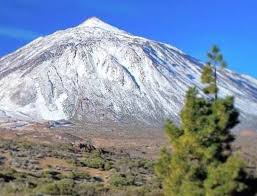NATURAL SCIENCE - week 2 of quarantine
This week, we are going to see what is related to reproduction of plants. In the first case, we have to know that p and lants reproduce in two different way: sexual and asexual reproduction (pages 58 and 59 in your book).
SEXUAL REPRODUCTION is the process where two plants are needed: male and female. And in this type of reproduction, plants use seeds they produce. And we can distinguish two types of flowering plants: angiosperms and gymnosperms. What is the difference? Take a look at the book and you can also watch this video:
As you can see, the main difference has to do with the type of flower and fruit they have. The description in the book is quite good but, if you have any doubts, you can ask me.
ASEXUAL REPRODUCTION is how plants reproduce without any seeds (so, without a fruit).
Non-flowering plants reproduce by spores. And, apart from the theory in your book, here you are a video to see spores, not only imagine them:
But flowering plants also reproduce in an asexual way (we saw the sexual way before): it uses tubers (for example, potatoes), stolons (for example, strawberries) or cuttings (when you cut a piece of a plant, you put it into water and roots grow).
And in this video you can watch the difference between sexual and asexual reproduction, in case you need it.
Ok, now that you have revised the theory of reproduction in plants, you are ready to do some activities:
- Make mind maps of plants reproduction (remember you don't have to copy everything, only the important concepts and how they are related).
- Page 58. Activities 1 and 2.
- Page 59. Activity 3.
And there is also an optional activity that you can do with the rest of your family: try to grow your own plant from a seed (a lentil, a chickpea...) or from a cutting (cut a piece of a plant, put it into water and see how roots grow). If you do, take photos to describe the process.

Comentarios
Publicar un comentario